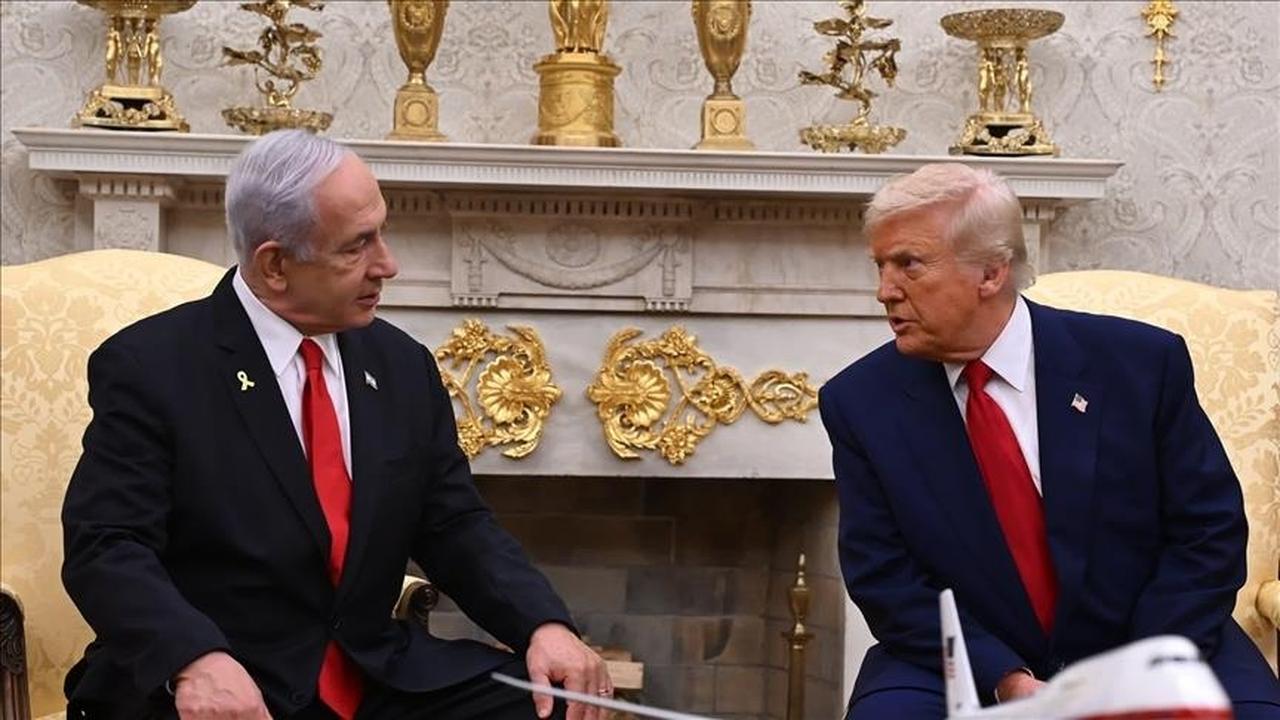
The once-robust alliance between President Donald Trump and Israeli Prime Minister Benjamin Netanyahu has shown increasing signs of strain in recent weeks, as the two leaders diverge on approaches to critical Middle East challenges, according to multiple sources with knowledge of the relationship.
The rift centers primarily on divergent strategies toward Iran's nuclear program and the ongoing military operations in Gaza, six sources told NBC News, including U.S. officials and Middle Eastern diplomats.
At the heart of the growing divide is a fundamental disagreement over how to address Iran's nuclear ambitions. For Netanyahu, the current moment represents a rare strategic opportunity to neutralize Iran's nuclear facilities through military action, according to two U.S. officials, two Middle Eastern diplomats, and two other people familiar with the tensions.
This perspective has been reinforced by recent Israeli military strikes that crippled Iranian strategic air defenses in October, creating what Israel perceives as a fleeting window when manned aircraft could conduct new strikes with reduced risk of being shot down. Israeli officials have reportedly conveyed concerns that this window is closing as Iran rebuilds its defensive capabilities.
"They're worried about any deal," one U.S. official said, summarizing the Israeli position.
Netanyahu has privately expressed skepticism that negotiations with Iran will yield results, viewing such diplomatic efforts as futile because Tehran will never honor its commitments, according to the U.S. officials. The Israeli leader reportedly hoped to secure a pledge of U.S. air support for potential operations against Iranian nuclear facilities during his White House visit last month.
Instead, Netanyahu was reportedly taken aback when Trump announced his intention to pursue direct talks with Tehran. The Israeli prime minister has made clear to U.S. officials that Israel opposes any agreement that would permit Iran to maintain uranium enrichment capabilities.
Trump publicly acknowledged the unresolved nature of this issue on Wednesday, stating, "We haven't made that decision yet," when asked if the U.S. position would allow Iran to have a uranium enrichment program for civilian nuclear purposes—a comment that particularly rankled Netanyahu, according to sources.
Another significant area of discord involves Gaza, where Trump has expressed frustration with Netanyahu's decision to launch a new military offensive. The president views these operations as contradicting his vision for rebuilding the territory into what he has described as a "Riviera of the Middle East," according to one U.S. official and another source familiar with the tensions.
Privately, Trump has characterized the new Israeli offensive as a "wasted effort" that will complicate reconstruction plans, these sources said. The U.S. is currently pushing both Israel and Hamas to agree to a ceasefire in Gaza, a topic that Netanyahu's adviser Ron Dermer was scheduled to discuss with Trump's Middle East envoy, Steve Witkof, during a White House meeting this week.
The cease-fire efforts come as Trump aims to implement his postwar rebuilding plan for Gaza, a vision that appears increasingly at odds with Israel's continued military operations in the territory.
Netanyahu was reportedly blindsided and infuriated by Trump's recent announcement that the U.S. would halt its military campaign against the Iranian-backed Houthi militants in Yemen. The decision came after the Houthis agreed to stop firing on U.S. ships in the Red Sea, but notably followed shortly after a Houthi missile attack that struck near Ben Gurion, Israel's main airport.
This development has underscored the differing security priorities between the two leaders, with Netanyahu reportedly responding to Trump's announcement by stating that Israel would defend itself if the U.S. would not continue operations against the Houthis.
The disagreement highlights a broader tension: while Netanyahu seeks comprehensive action against Iran and its proxies throughout the region, Trump appears more focused on deal-making and targeted agreements that address specific U.S. interests.
Despite these significant policy differences, Netanyahu faces considerable political constraints in how forcefully he can push back against Trump. The Israeli leader's political survival depends on maintaining support from a base that strongly favors Trump, according to experts familiar with Israeli politics.
"Netanyahu's whole political strategy and survival strategy is based on holding his coalition and holding his political base together," said Ilan Goldenberg, who worked on Middle East policy during the Biden and Obama administrations. "And those folks love Trump, so for him to go very publicly against Trump is something he really can't do."
This dynamic creates a complex political calculus for Netanyahu as he navigates disagreements with a U.S. president who remains highly popular among his supporters.
The White House, for its part, has publicly emphasized the strength of the U.S.-Israel relationship despite the emerging tensions. "Israel has had no better friend in its history than President Trump," said James Hewitt, a National Security Council spokesperson, in a statement responding to inquiries about the relationship.
"We continue to work closely with our ally Israel to ensure remaining hostages in Gaza are freed, Iran never obtains a nuclear weapon, and regional security in the Middle East."
Republican senators have weighed in on the Iran negotiations, with Sens. Tom Cotton and Lindsey Graham stating that the only acceptable deal would be one that completely halts Iranian uranium enrichment.
They've also called for any agreement to be submitted to the Senate for ratification, which would require a two-thirds majority vote—a significant hurdle that was not attempted with the 2015 Iran nuclear deal negotiated under President Barack Obama.
A U.S. official noted that Witkoff maintains "constant contact" with Graham regarding Iran negotiations and recently briefed Cotton on the talks.
The tensions come as Trump prepares for a Middle East trip next week, with planned stops in Saudi Arabia, Qatar, and the United Arab Emirates. Unlike during his first term, the president is not currently scheduled to visit Israel on this trip.
Meanwhile, diplomatic efforts continue on multiple fronts, with Witkoff expected to attend another round of negotiations with Iran this weekend in Oman, while U.S. officials simultaneously work to advance cease-fire talks for Gaza.